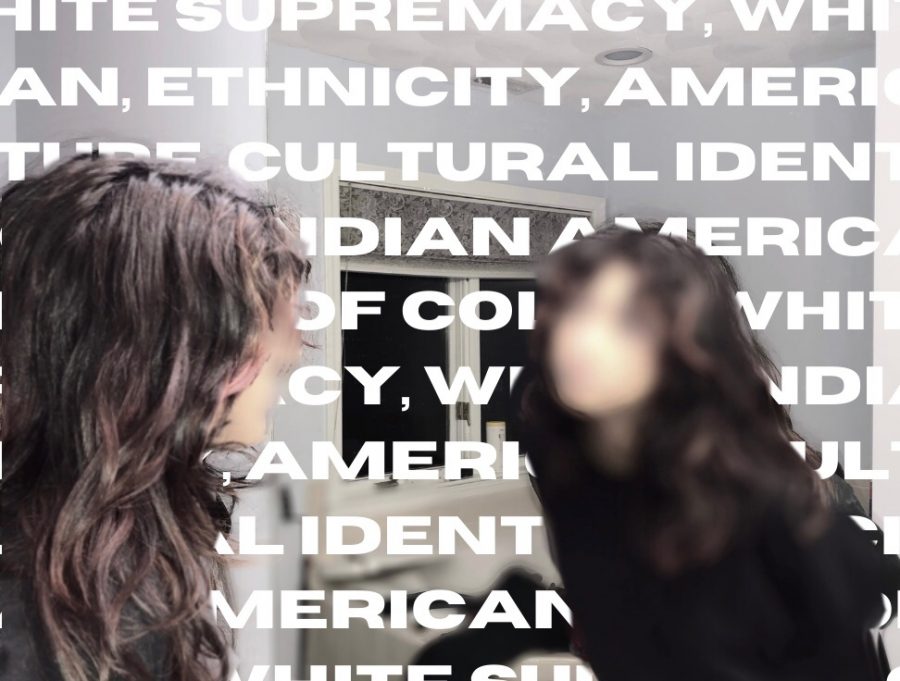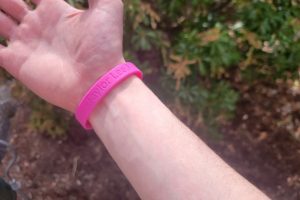You’re not whitewashed; you just deserve better
For young people of color, finding their cultural identity can be confusing.
April 7, 2021
Dear fellow people of color, you’re not whitewashed; you just deserve better.
If you’re a person of color in a predominately white area, you’ve probably heard the term “whitewashed” at least once in your life. You may have been called it, know people who have been called it, or even have been the person describing someone as it.
For those who don’t know, ‘whitewashed’ is when a person of color is regarded as being more ‘white’ due to assimilation, proximity to white individuals, or a perceived distance from their assumed cultural identity. Basically, someone acting ‘too white’ is generally used in an insulting manner.
Despite all of this, I am here to tell you, you cannot be ‘whitewashed’.
As a child of Indian immigrants, balancing my ethnic culture and the culture of the world I am surrounded by has not been easy. This is an experience many people of color share, especially first-generation immigrants.
Much of the reason Indian Americans are regarded as whitewashed by their fellow Indian Americans and even white peers is because the idea of being American has been conflated with what it means to be white. While there is some truth in saying that American culture is close to whiteness and white supremacy, the definition of being American is constantly changing, and there is no one true definition.
I among many other people of color have experienced struggles with cultural and racial identity. These struggles come with balancing what it means to be an American while preserving who you feel you are as an Indian American, or whatever your cultural or ethnic background is.
When immigrant children are in an area where they are misunderstood and not represented, being ‘whitewashed’ is many times a form of protection from being seen as an ‘outsider’ or experiencing blatant and directed racism. Despite this, I have come to learn that no matter how much you try to fit in with your white peers, they will never truly view you how you want them to. You will never be able to hide your race no matter how hard you try.
During middle school, the struggle with my racial identity became more prevalent. I occasionally allowed others to joke about my race, staying quiet when Indian accents were mocked, or small comments and microaggressions were made. I stayed silent and did not show my true feelings, I never wanted them to know the power their hurtful words had over me.
I had somehow convinced myself that I was distancing myself from ‘weird’ members of my culture when in reality, I was only hurting myself while perpetuating racism against my own people. I thought by agreeing with their racism, I somehow would be seen as an equal, rather than someone they saw as a punchline. For the better part of middle school, I made it a point to distance myself from those who didn’t conform to a white perspective.
I was only able to fully change after unfortunately experiencing a traumatic instance of racism myself. Near the end of 7th grade, I was verbally harassed by two white boys; they insulted parts of my culture, criticized my religion, and even spilled the contents of my pencil case onto the floor, telling me it smelled like curry. They mocked the Indian accent and were doing anything they could to make me feel like I was worth nothing. Two other white girls were at our table and they stayed silent as well. When I told the boys to stop their racist words, they continued until I was at the point of tears. “Go back to India” is what they said before I ran out of the room in shock, fear, and embarrassment.
Only then did I come to understand that no matter my efforts, as a person of color in a town like Westford, when I align myself with individuals who don’t respect me for every part of myself including my race, I am alone.
It breaks my heart, to know that there are so many young people of color that have not come to this realization yet and are trying so hard to fit in with a group that will never view them as how they see themselves.
If you are alone, in a group of ‘friends’ who use your race as a weapon and a punch line, I want you to know that you deserve better. You’re not whitewashed for being cautious in order to protect yourself from ridicule; you’re simply someone who hasn’t found their true self yet. But, I can tell you that your true, happiest self isn’t found among those who do not respect you for something that is so deeply a part of you.
If you still find yourself still wanting to chase the concept of fitting into a white setting, please know it will never happen. You will never fit in among people who force you to compromise your dignity.
So, when others call us ‘whitewashed’ to try and shame us, it’s not only regressive but unnecessary and unhelpful. You can have white friends and assimilate yourself into American culture, but this doesn’t make you any less Indian or less of a minority, because people of color are versatile and human. We are fallible and we are bound to vary in our perspectives and opinions; no one way is the right way to view the racial experience in America.
Being called whitewashed is just another facet of white supremacy that intends to divide us as people of color. When we are divided, we have to face the effects of white supremacy alone. It more or less says that people of color can only act in a few specific ways that many times adhere to stereotypes.
As an Indian American in Westford, a predominately white town, I can only speak from my perspective, but I have seen that many times when non-Indian Americans call any of us whitewashed, it comes from a place of stereotypes and preconceived notions. You are not whitewashed for doing things that make you happy, even if they do not fit into cultural or societal expectations.
Over the past few years, I have grown to understand my worth. I have been called whitewashed and I have been called a “currymuncher” too. I will never be able to please everyone and it goes to show that terms like whitewashed are so arbitrary and meaningless when compared to the racism we all face.
Only you know what life is right for you.
There’s no one way for all people of color to behave. This type of thinking — that all people of color have to think or act the same — is inherently racist. But, it is as equally internally racist to think that when you veer from your own culture, you are somehow better than those who more actively participate and understand it.
You decide your future. You decide how you will react to those around you. And I hope you will decide that you deserve better.









Danyell • Dec 29, 2023 at 1:54 pm
Thank you for this beautiful article! I am an African American woman and I really relate to this article. It’s such a lonely experience feeling alienated from your culture as well as the one dominantly around you and I’ve never read an article that validated me and left me feeling inspired about this topic. You’re so right that if you need to “fit in” either way, it’s not your soul tribe! Thank you again for this.
Fatima • May 18, 2023 at 11:24 am
I relate to this, my friends call me whitewashed because I hang out with my other group of friends which are all white sometimes and it’s so hurtful. I don’t know how to stop being whitewashed I’ve been called this by my sister and my friends and I’m sick of it, how am I supposed to stop “acting white” when I live in a predominantly white area with barely any Asians? And when I asked how to stop being white washed to my friend she told me to act like another Asian girl in my year
I’ve been called this by my sister and my friends and I’m sick of it, how am I supposed to stop “acting white” when I live in a predominantly white area with barely any Asians? And when I asked how to stop being white washed to my friend she told me to act like another Asian girl in my year 
Abby Vanterpool • Nov 13, 2022 at 11:40 pm
As a person of color in a mostly-white community, i really felt almost every word of this article. since i was little i tried changing myself to be viewed as “more white” so people would like me. from reading this, i realized that i can never change my race or. as you said, how much of a minority i am. this has really changed my perspective on myself and how i will act in the future. this is a very well written article, you did such a great job.
Jon Vishwanathan • Apr 13, 2021 at 7:08 pm
Looks like my comment got deleted by pressing “back”. Basically what I said is that I understand your message, but I feel that this issue is more of a human nature issue where a majority holds control over the culture and social order, so therefore minorities will have to adjust and balance their original culture with the country they are in. This seems to be the pattern in any country. I totally get what you mean as you are speaking from the perspective as an indian/colored individual in America, where whites are the majority, but I dont see how this is solely a white supremacy issue.
Jon Vishwanathan • Apr 13, 2021 at 7:03 pm
I see. Yes I have also had stereotypes towards me as an indian, but even with the name calling and being made fun of, this was but a small obstacle. One needs to learn how to overcome taunts and meaningless expectations from others. That is a part of growing up. Most people seem to want to amplify past issues as a reason for their problems today. Being in a majority white country, stereotypes of non whites are bound to occur. And therefore harrassment, killing, and many other issues. But this is also applicable in any other country where one race is the majority. Such as in india or china, where minority children and adults are also stereotyped, ridiculed, and killed (if not at a higher scale). It seems that this is more of a human nature issue rather than solely white supremacy. I understand your message as this applies to the american experience as a colored person, but I am just not understanding how white supremacy is the sole cause for this. Every country in which one race holds the culture and majority, believes they are supreme. I think the problem you are trying to address is just the superiority mentality right? And how non majority races have to fit into that?
Sophia Keang • Apr 7, 2021 at 9:38 pm
This is a such a well-written and important piece Unnati. I am so proud of you, please never stop speaking your truth.
Keertana Gangireddy • Apr 7, 2021 at 9:28 pm
Unnati, this is an incredible article, I’m so proud of you <3
Jon Vishwanathan • Apr 7, 2021 at 8:08 pm
Interesting article, but aren’t you doing the same thing by labeling whites as non versatile and somehow different than people of “color”. Every human experiences a form of racism and /or bullying, it’s how we grow up and understand the mentality of others. I like your point of trying not to please people constantly and that you wont ever fit anyone’s expectation of you. When we live in a non-homogenous society, racial issues and complaints are bound to happen. Overall well written, but the message seems to have an undertone of having a victimhood mentality.
Unnati Bhat • Apr 7, 2021 at 8:43 pm
@Jon Vishwanathan, I never meant to label white people as non-versatile, my point was that people of color are more than stereotypes and the expectations set for them, in a school setting I’ve seen this many times goes overlooked. When Indian Americans exceed or fall short of racially motivated expectations or visibly don’t fit stereotypes there’s another layer of racism that is in the shock and reaction of that. This article aims to be relatable to young first-generation immigrants and I’m not sure where the idea of victim mentality comes in, I was simply sharing my experiences and thoughts that have formed who I have become today. Even when highlighting my firsthand experiences I made sure to highlight how that experience was a shock and made me understand more about my worth. All throughout this article, I make sure to highlight that people of color deserve better and should understand their worth, and if this is seen as a victim situation then so be it, those who do experience racism are victims of white supremacy and that won’t change for a while, but how we handle that and assert ourselves with dignity could make it a lot easier, especially when it comes to self identity.
Layna • Aug 7, 2024 at 11:17 am
I know this comment is about three years old and you may have changed as an individual. But what you are saying is a facet of white supremacy, saying that poc are in a “victim mentality” when talking about racism and equating racism to the same as bullying is also a facet of white supremacy. Equating it to something other than what it is, is white supremacy. White supremacy is the sole reason for the behavior that Unnati has wrote about, racial issues don’t exist without white supremacy. We know this because it started when the Europeans invented the idea of race and enslaved most of the world under this idea and thus you have white supremacy. This isn’t just a “human issue”, this is white supremacy which if you’ve truly understood the mass amounts of trauma and suffering it’s caused to multiple groups people and animals, you wouldn’t call it a “human issue” because humans wouldn’t do the things they have done to keep white supremacy in place. Also last thing, white people cannot experience racism because they benefit from racism being in place. You can’t be the victim and also the oppressor.
Divya Sambathkumar • Apr 7, 2021 at 6:59 pm
So proud of you Unnati
Valery • Apr 7, 2021 at 4:45 pm
This is so well-written. Thank you for opening up and sharing your experiences.
Shanth • Apr 7, 2021 at 1:24 pm
Nice one Unnati. Keep up the good work
Pravar M • Apr 7, 2021 at 11:45 am
Nice job Unnati!!
Prajna • Apr 7, 2021 at 11:22 am
So nicely written Unnati proud of you
Poornima • Apr 7, 2021 at 10:29 am
Very well written!!